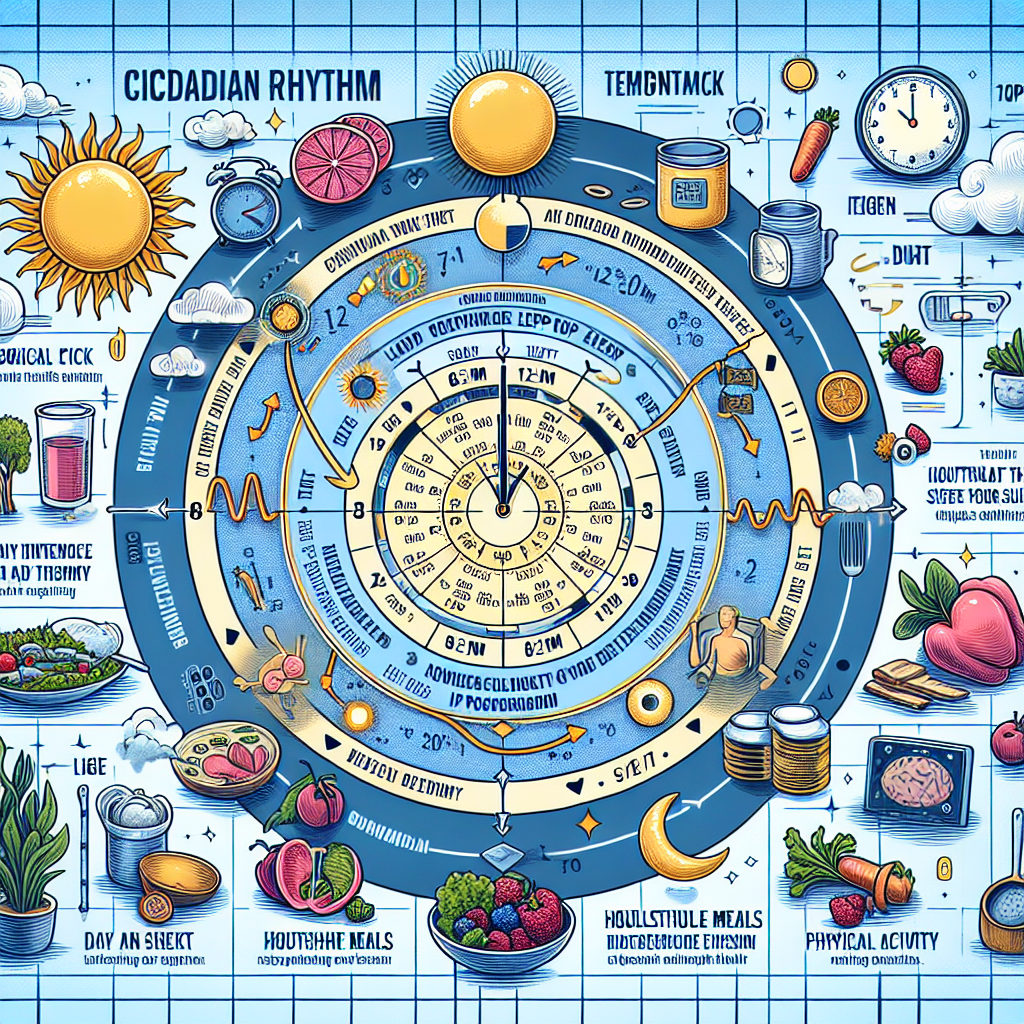How to Optimize Your Circadian Rhythm for Better Health

Discover how to optimize your circadian rhythm for better health today! Learn the secrets to improved sleep, increased energy, and overall wellness. Don’t wait, start your journey to a healthier lifestyle now. Click here to get started.
Maximizing Your Circadian Rhythm for Enhanced Health and Wellness
The circadian rhythm, often referred to as the “body clock,” is a natural, internal system that regulates the sleep-wake cycle and repeats roughly every 24 hours. It can refer to any biological process that displays an endogenous, entrainable oscillation of about 24 hours. These rhythms
The Role of Circadian Rhythm in Achieving Optimal Health

The circadian rhythm, often referred to as the “body clock,” is a natural, internal system that regulates the sleep-wake cycle and repeats roughly every 24 hours. It can refer to any biological process that displays an endogenous, entrainable oscillation of about 24 hours. These 24
Strategies to Optimize Your Circadian Rhythm for Improved Health
The circadian rhythm, also known as your body’s internal clock, plays a crucial role in regulating your sleep-wake cycle, metabolism, and even your mood. It is influenced by environmental cues, most notably light and darkness, and can significantly impact your overall health and well-being. Therefore, optimizing your circadian rhythm can lead to improved health and vitality.
Firstly, one of the most effective strategies to optimize your circadian rhythm is to maintain a consistent sleep schedule. This means going to bed and waking up at the same time every day, even on weekends. This consistency helps to regulate your body’s internal clock and can aid in better sleep and wakefulness throughout the day. It’s important to note that adults typically need seven to nine hours of sleep per night, and consistently getting less than this can disrupt your circadian rhythm and lead to health problems.
Secondly, exposure to natural light during the day is another key factor in regulating your circadian rhythm. Natural light, especially in the morning, signals to your body that it’s time to wake up and start the day. Spending time outside in natural light, or in a brightly lit environment if you can’t get outside, can help to reset your body’s internal clock and improve your sleep and mood. Conversely, limiting exposure to artificial light, especially blue light from screens, in the evening can help signal to your body that it’s time to wind down and prepare for sleep.
In addition to light exposure, regular physical activity is also beneficial for your circadian rhythm. Regular exercise, particularly in the morning or early afternoon, can help to reinforce your body’s sleep-wake cycle and improve sleep quality. However, it’s important to avoid intense physical activity close to bedtime, as this can interfere with your ability to fall asleep.
Diet also plays a role in regulating your circadian rhythm. Eating meals at regular times each day can help to regulate your body’s internal clock. Additionally, it’s important to avoid large meals and caffeine close to bedtime, as these can interfere with your ability to fall asleep.
Lastly, managing stress is another important aspect of optimizing your circadian rhythm. Chronic stress or anxiety can disrupt your sleep-wake cycle, leading to problems with sleep and overall health. Techniques such as mindfulness, meditation, and deep-breathing exercises can help to reduce stress and improve sleep.
In conclusion, optimizing your circadian rhythm is a multifaceted approach that involves maintaining a consistent sleep schedule, getting regular exposure to natural light, engaging in regular physical activity, eating meals at regular times, and managing stress. By implementing these strategies, you can help to regulate your body’s internal clock, leading to improved sleep, better mood, and overall better health. It’s important to remember that everyone’s circadian rhythm is slightly different, and what works for one person may not work for another. Therefore, it may take some trial and error to find what works best for you. However, by making these lifestyle changes, you can optimize your circadian rhythm and reap the health benefits.